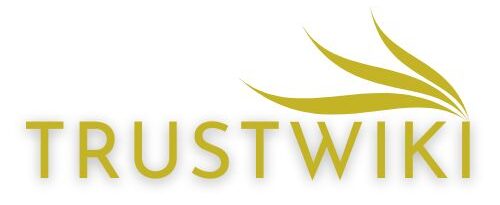Introduction
In the modern digital landscape, the internet has become saturated with countless platforms offering financial services, health advice, and wellness resources. Among these sites, one that has recently sparked attention is BlackRockLast.com. Its name carries a striking resemblance to globally recognized investment management giant BlackRock, which immediately raises questions regarding its authenticity and intentions. When users stumble upon such domains, curiosity often takes over, prompting them to explore what these platforms truly offer. Is it a genuine service catering to finance and wellness, or merely a cleverly crafted scheme that leverages a big name to gain credibility?
The importance of online trust has never been more critical. With increasing cases of scams, fake investment portals, and wellness misinformation circulating on lesser-known websites, users are right to be cautious. This article seeks to uncover the reality of BlackRockLast.com, breaking down its features, analyzing its interface, exploring the legitimacy of its services, and ultimately determining whether it’s safe and beneficial to use. With rising consumer concerns over data privacy and online scams, understanding platforms like BlackRockLast.com becomes a necessity, not a choice.
What is BlackRockLast.com?
At first glance, BlackRockLast.com appears to be a site that mixes investment services with a dose of health and wellness content. Its name suggests an affiliation with BlackRock Inc., one of the world’s largest asset management firms, but there is no verifiable evidence that connects this domain to the actual BlackRock brand. This discrepancy alone creates the need for a deeper inspection.
The homepage of the website attempts to present itself as a trustworthy hub for wellness advice and financial tools. However, there is a notable lack of transparency. There is no publicly visible team behind the site, nor are there proper disclosures, privacy policies, or detailed contact information. Additionally, the use of a brand-like name such as “BlackRock” in its domain can be considered misleading. While the website might not immediately appear fraudulent, its vague branding and lack of identity verification are red flags for discerning users.
Health and Wellness Features
One of the core sections of BlackRockLast.com is centered on health and wellness content. This includes articles about weight loss, immune system support, mental well-being, and nutritional supplements. These articles often feature generic advice, heavily recycled from publicly available sources. Unfortunately, there is little to no citation of credible studies or references from medical professionals.
Many wellness platforms aim to educate and empower users to make informed health decisions, but BlackRockLast.com falls short in this department. The advice given is often superficial and lacks depth. More concerning is the occasional presence of product links or supplement promotions without FDA disclaimers or third-party certifications. Without verifiable sourcing or the backing of legitimate wellness experts, it’s difficult to classify the site as a trusted source of health information.
Investment Services
In a surprising twist, BlackRockLast.com also attempts to offer investment-related content. This dual nature is confusing and uncommon, as health and finance usually do not intersect in this manner on the same platform. Investment-related sections include topics like personal finance planning, cryptocurrency trends, and general market insights.
The quality of investment information is questionable. The articles seem repurposed, lacking original insights or financial analytics. There is also an absence of regulatory disclosures, financial licenses, or author credentials, all of which are vital for a site offering investment guidance. Users are never told who is offering the advice, whether it’s a certified advisor or an AI-generated article. This ambiguity introduces significant risk for those who might rely on such content to make financial decisions.
ALSO READ: Highlights of Nummazaki
User Experience
From a design standpoint, BlackRockLast.com maintains a simple interface. The site loads relatively fast, and its layout is mobile-friendly. However, once you dig deeper, the cracks begin to show. Navigation lacks structure, with poorly categorized articles and minimal filtering options. There are limited interactive features, and the site appears more like a content dump rather than a fully functioning platform built for user interaction.
Pop-ups and occasional advertisements further detract from the experience. Many of the articles are short, repetitive, and sometimes redirect users to external websites of uncertain credibility. This not only disrupts user experience but may also expose visitors to other potentially unsafe domains. Overall, while the interface is clean, the lack of meaningful content, combined with external redirects, makes the browsing experience questionable at best.
Is BlackRockLast.com Safe?
The most pressing concern for any user is online safety, especially when dealing with a platform that blends health advice with financial content. Security scans of BlackRockLast.com reveal that the site has no active SSL certificate in some instances, depending on the version visited (HTTP vs HTTPS). An unsecured connection can expose user data to third-party interception.
Moreover, the website does not provide a privacy policy, which is a critical component in determining how user information is stored, used, and protected. Without this, users have no way of knowing whether their email addresses, personal preferences, or IP data are being harvested or shared with advertisers.
There have also been some reports on discussion boards and forums where users claim they were misled into subscribing to email lists that spam them with unrelated content or investment schemes. While these cannot be entirely verified, they reinforce the importance of practicing caution when engaging with unfamiliar platforms like BlackRockLast.com.
Should You Use BlackRockLast.com?
If you’re looking for credible health advice or trustworthy financial guidance, BlackRockLast.com is not the ideal destination. The lack of verified authorship, absence of contact details, and the dual nature of content categories suggest that the site may be more focused on search engine traffic than actual user value. Mixing wellness and investment under one domain with a name resembling a major asset manager only adds to the confusion and concern.
Users who value their time, privacy, and well-being should steer toward more reputable platforms. Trusted health websites like Mayo Clinic, WebMD, or Healthline offer evidence-based wellness content. For investment insights, one is better off relying on licensed professionals or recognized platforms such as Investopedia, Morningstar, or directly consulting a financial advisor.
While BlackRockLast.com does not show immediate signs of being a phishing trap or malware host, the subtle risks in its misleading branding, weak content, and lack of safety protocols are enough to recommend avoiding it.
Conclusion
In an age where misinformation and digital manipulation are growing threats, websites like BlackRockLast.com raise important questions about online accountability and consumer awareness. On the surface, it may appear to be just another content-based website mixing wellness tips with financial advice. But a deeper inspection reveals a concerning lack of transparency, poor content quality, and questionable intentions behind its naming and domain registration. The site’s design and articles may lure in curious users, but it lacks the foundational trust factors essential for any digital platform today.
Without verified credentials, clear ownership, regulatory disclosures, or secure browsing infrastructure, BlackRockLast.com cannot be considered a safe or valuable resource. In fact, it represents a growing trend where obscure websites adopt familiar names and offer multi-topic content to harvest search traffic. This strategy may seem harmless, but it can easily lead to the spread of misinformation or expose users to broader risks. Ultimately, it’s advisable to avoid using BlackRockLast.com for any health or investment-related purposes and instead rely on credible, secure, and expert-backed platforms for such critical matters.
FAQs:
Is BlackRockLast.com affiliated with BlackRock Inc.?
No, there is no official or legal affiliation between BlackRockLast.com and BlackRock Inc., the global investment management corporation.
Is the health advice on BlackRockLast.com reliable?
The site provides generic health tips with no medical verification or citations from credible sources. It is not recommended for health decisions.
Does BlackRockLast.com offer legitimate investment guidance?
No. The financial content lacks credentials, author identification, and regulatory compliance, making it unreliable.
Can I trust BlackRockLast.com with my personal data?
Due to the absence of a privacy policy and potential unsecured connections, user data may not be adequately protected.
Is BlackRockLast.com a scam?
While not officially labeled a scam, its misleading name, unverified content, and lack of transparency are strong warning signs to stay cautious.
Visit for more, Truswiki











